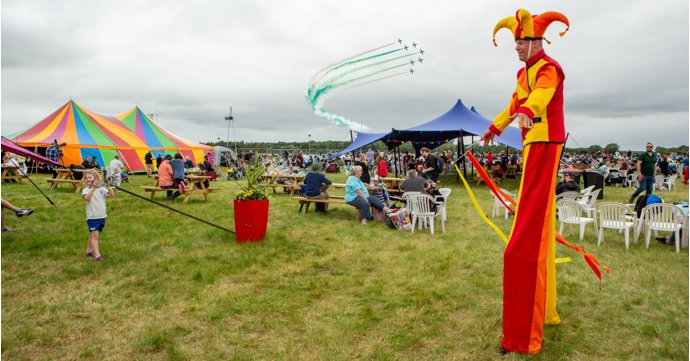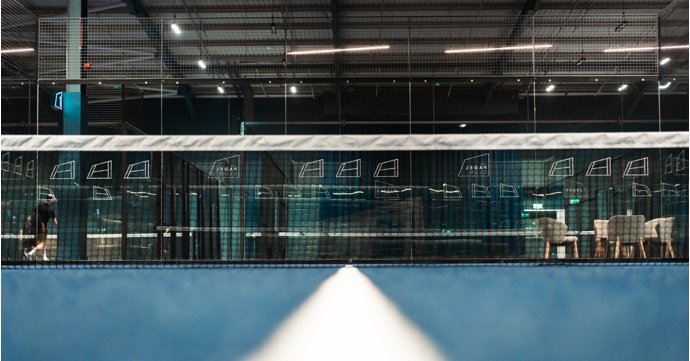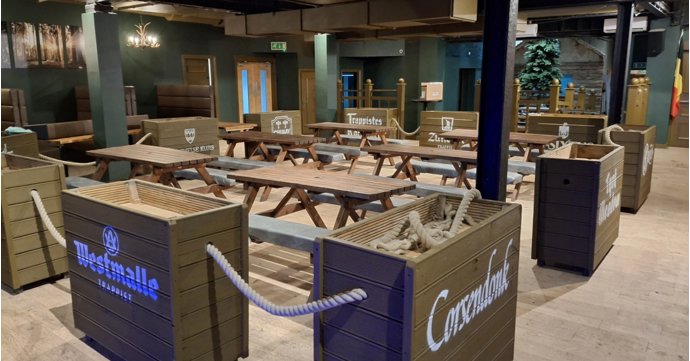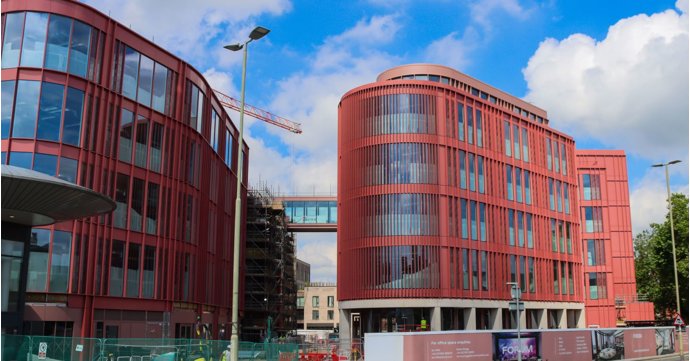A 20-year-old music, book and art enthusiast with a passion for science, Gloucestershire-based cyber apprentice, Rowan Edlington, loves everything to do with technology and is proud to be venturing into the STEM industry as a female engineer of cyber security — and is currently working on industrial control systems within nuclear power stations.
Having previously studied computer science, physics, maths and further maths at A level, Rowan struggled a lot and wasn't happy, despite enjoying the subjects. Undecided about which career path to follow — whether to pursue science or technology — SoGlos hears how she embarked on a cyber degree apprenticeship, in partnership with Gloucestershire College.
What is your motivation for pursuing a career in cyber security?
I have always been interested in computer science and, particularly, cryptography. I actually read a book series as a child that got me interested in code breaking and various encrypted scriptures throughout history — it really inspired me. I had never really considered cyber security as a career until I saw GCHQ's degree apprenticeship opportunity. I applied and really enjoyed the application process and the practice exercises. Despite not being successful in the application, I realised that cyber security may be a possible career pathway for me and that a degree apprenticeship was the way to go!
From there, I continued to apply for different cyber security degree apprenticeships and was happy to achieve one with EDF, working in the nuclear field.
How did you prepare for the application?
I first had to prepare a CV of my skills and experience — albeit very little! I not only included my part time bartending job and school education, but also things like being a voluntary figure skating coach and my interest in astronomy. For apprenticeships, employers want to see a human being, not a robot. They want someone with personality and interests.
I took the same principles into my interviews. The most important thing in interviews is having a positive attitude and enthusiasm. Employers appreciate it when you show interest in the company and the role. Research the company well beforehand to ensure you can talk about the goals of the company and how you personally align with them.
I believe I was a strong candidate at my company due to my varied interests in both computer science and physics. The job focuses very heavily on the nuclear industry and building a better future for the environment. Studying physics previously allows me to branch out into nuclear with different skills than just having an interest in computer science.
What day-to-day activities does your apprenticeship involve?
In my apprenticeship, my day job is usually very varied. I spend a lot of time collaborating in meetings. However, I also get to conduct interesting and thorough research for my project work.
I also spend time writing documents such as policies and procedures. Though, the most interesting is probably performing security assessments. I get to assess the design of the industrial computer systems and ensure that the correct development procedures have been followed and that adequate security arrangements are in place to protect the power station.
What’s been your favourite project to date and why?
My favourite project so far has definitely been working on the live construction site of Hinkley Point C (HPC) for eight weeks over the summer. It was an entirely new environment for me! I was able to tour different areas of the construction site that will eventually be an operating nuclear station. HPC is predicted to generate over seven per cent of the UK's energy demand. All electricity generated will be completely carbon neutral.
I performed some security assessments on equipment used in construction, which was also a new experience, as I haven't worked with this type of technology before. Additionally, I really enjoyed being able to explore the site. I was taken down to the tunnels beneath the Bristol Channel and was also able to stand in the reactor building, which soon will be inaccessible. I think it's my favourite project to date due to the range of new opportunities that I was able to experience and the new skills I picked up.
In your understanding, what are the key challenges currently facing the cyber security industry, and how do you see yourself addressing these challenges through your role as a cyber apprentice?
The cyber security industry faces many challenges currently. All companies are always at risk of attack, making it quite difficult to ensure all systems are defended. There's also such as a lack of professionals and resources in the field. There's also the risk of attacks due to inadequate awareness among employees. As a cyber apprentice, I enjoy and actively promote outreach events to expand the talent pool, particularly by working with schools.
It's important that people realise how needed cyber security professionals are and that there's a wealth of opportunities to take advantage of. Additionally, I focus on training, development and raising awareness within my role to increase the security from a human dimension. Better awareness reduces human risk in cyber security.
In nuclear specifically, one challenge we have is the use of legacy technology, which is completely unavailable in the industrial environment. I always strive to ensure best practices are followed and continually seek innovative solutions to address evolving threats.
As a cyber apprentice, what are your long-term career goals in the cyber security field?
My long-term career goal is to become an industrial cyber expert, using my expertise to continue to protect all of the nuclear stations in the UK. I am passionate about the engineering aspect and recognise the lack of resources in such an important field.
However, I would also like to explore the engineering within other industries that also need cyber security. So far, I've looked at cyber roles in nuclear fusion, aerospace, military defence and even satellites (yes, satellite cyber security exists!). There's so many engineering industries that are rich with cyber security opportunities for growth and development.
What advice would you share with those wanting to pursue the same career path as you?
My advice to those pursuing a career in cyber security is to step out of your comfort zone and embrace opportunities, even if they seem unexpected. I never expected to be working in engineering, but it's become a career that I love.
It's crucial to choose a path aligned with personal interests, enjoying your job significantly increases your career satisfaction and quality of life. Have confidence in your own skills, anything is possible if you put the work in. Applications may be difficult, but perseverance combined with a positive attitude goes a very long way.





















